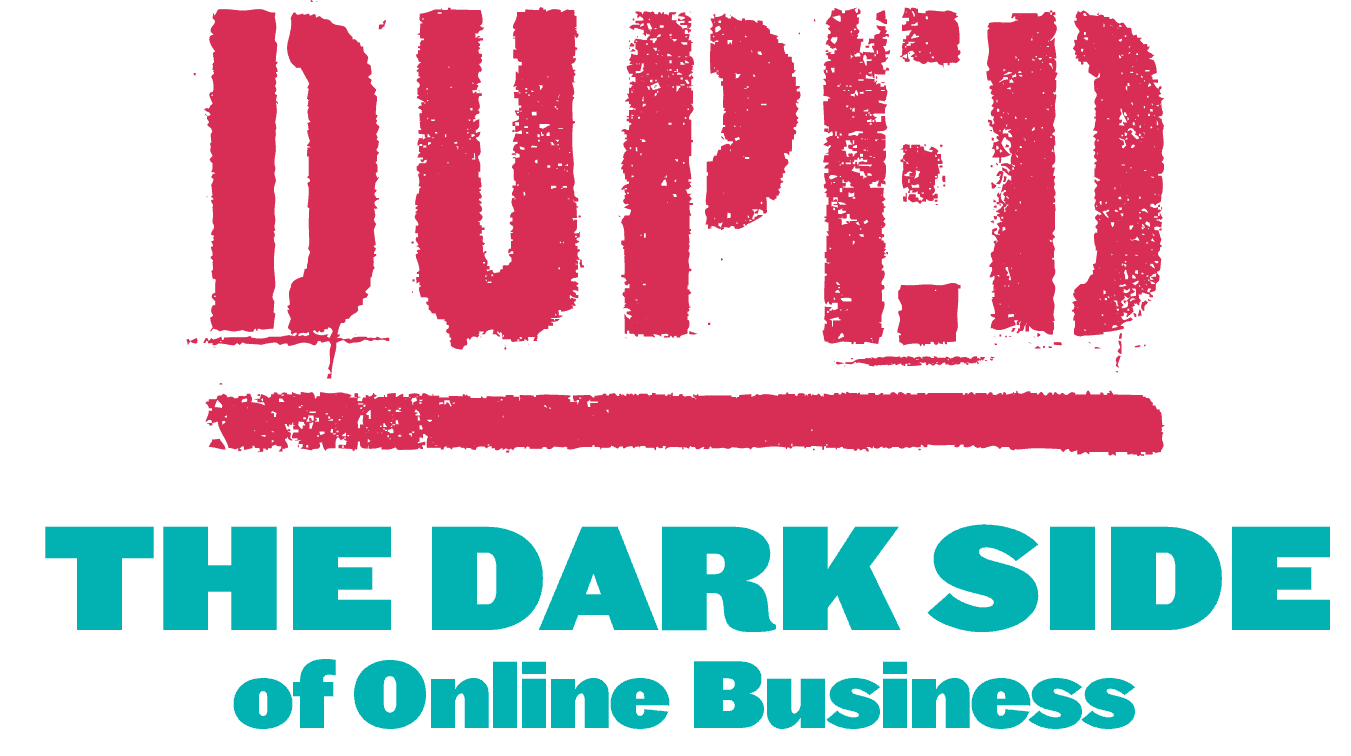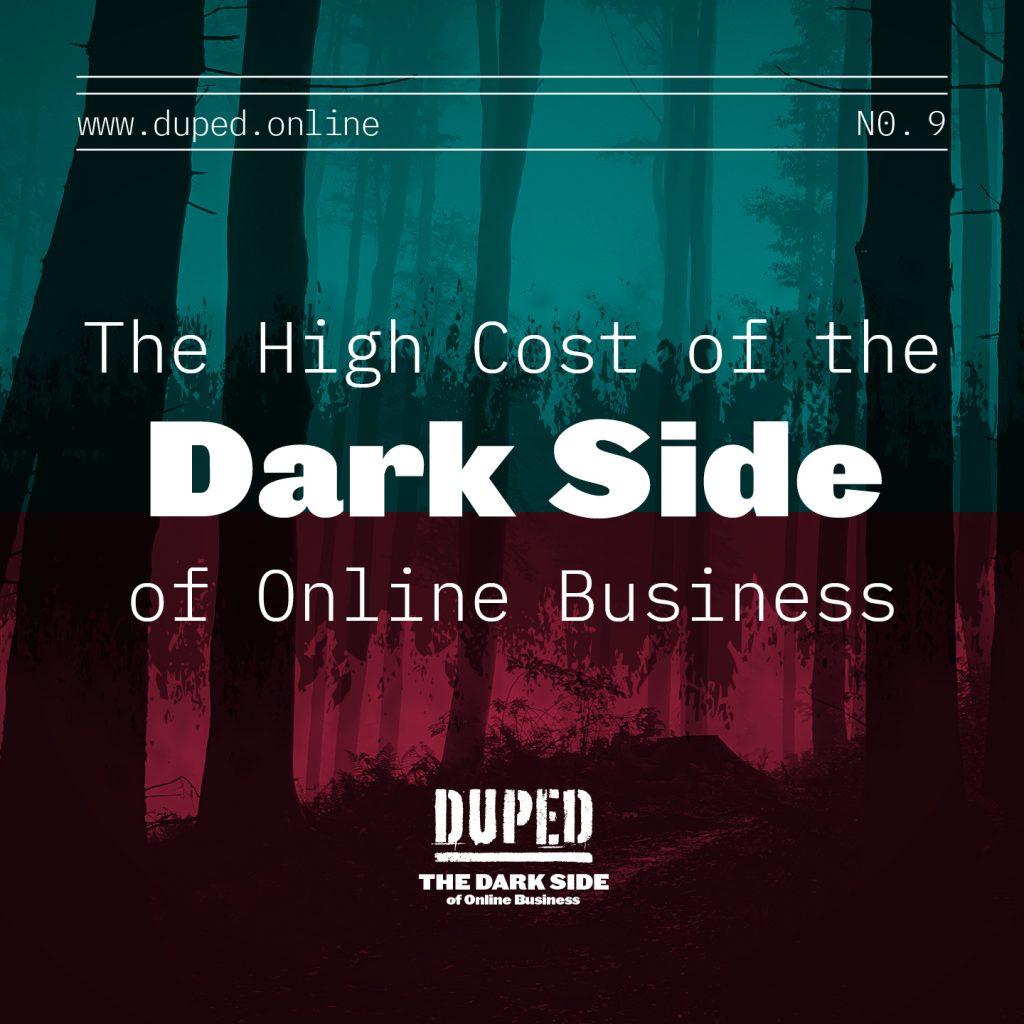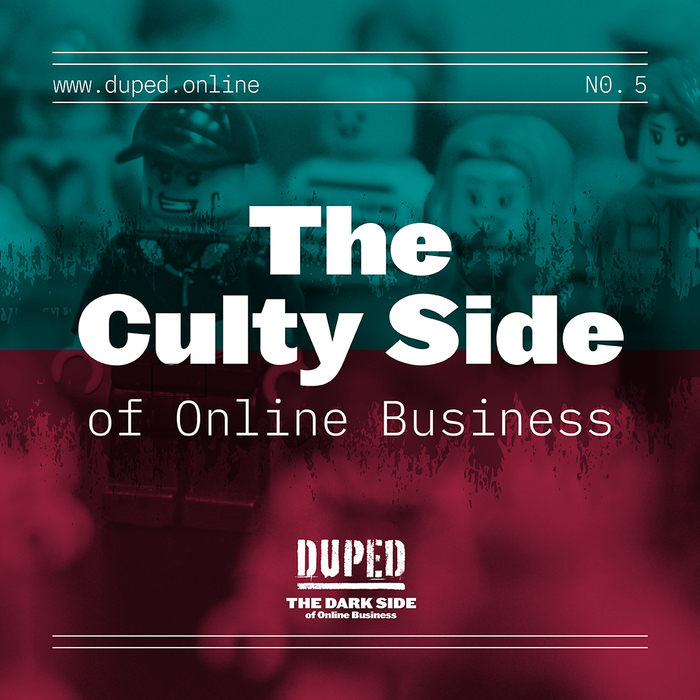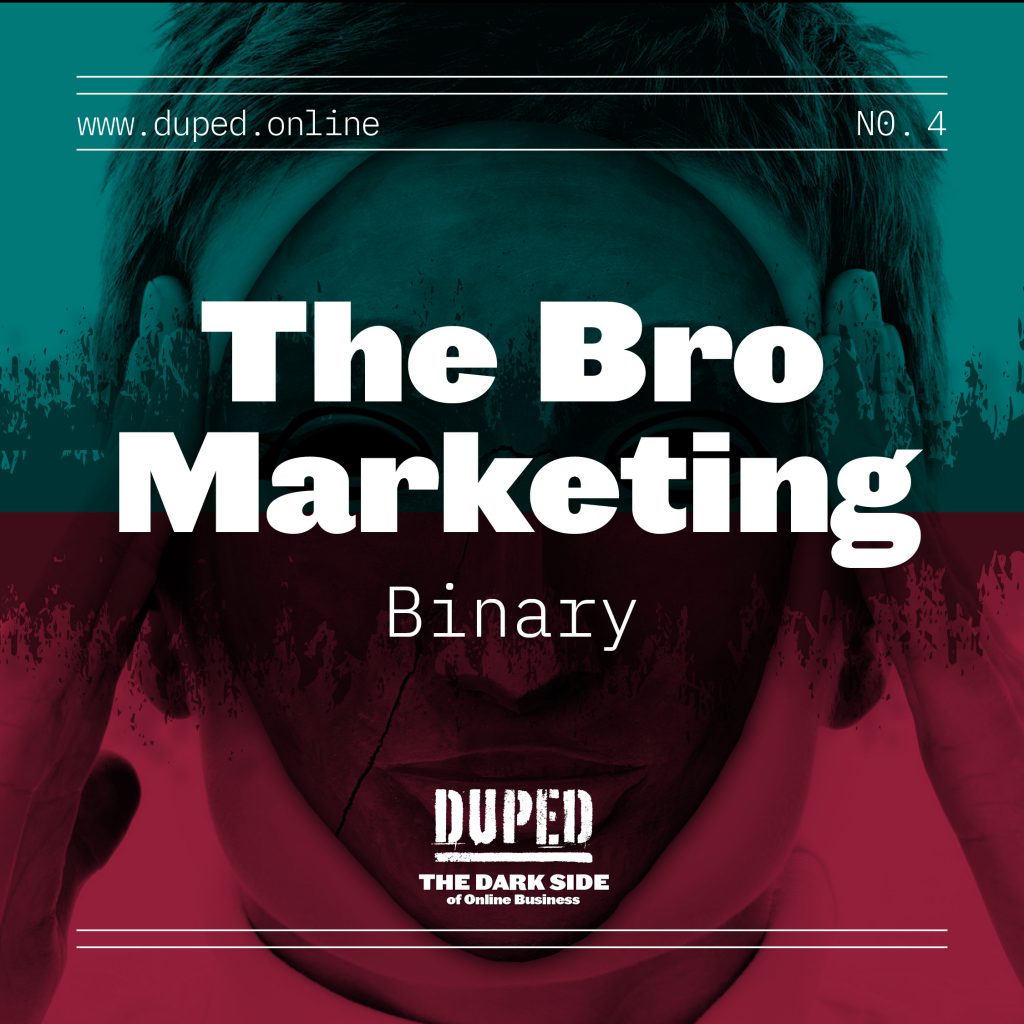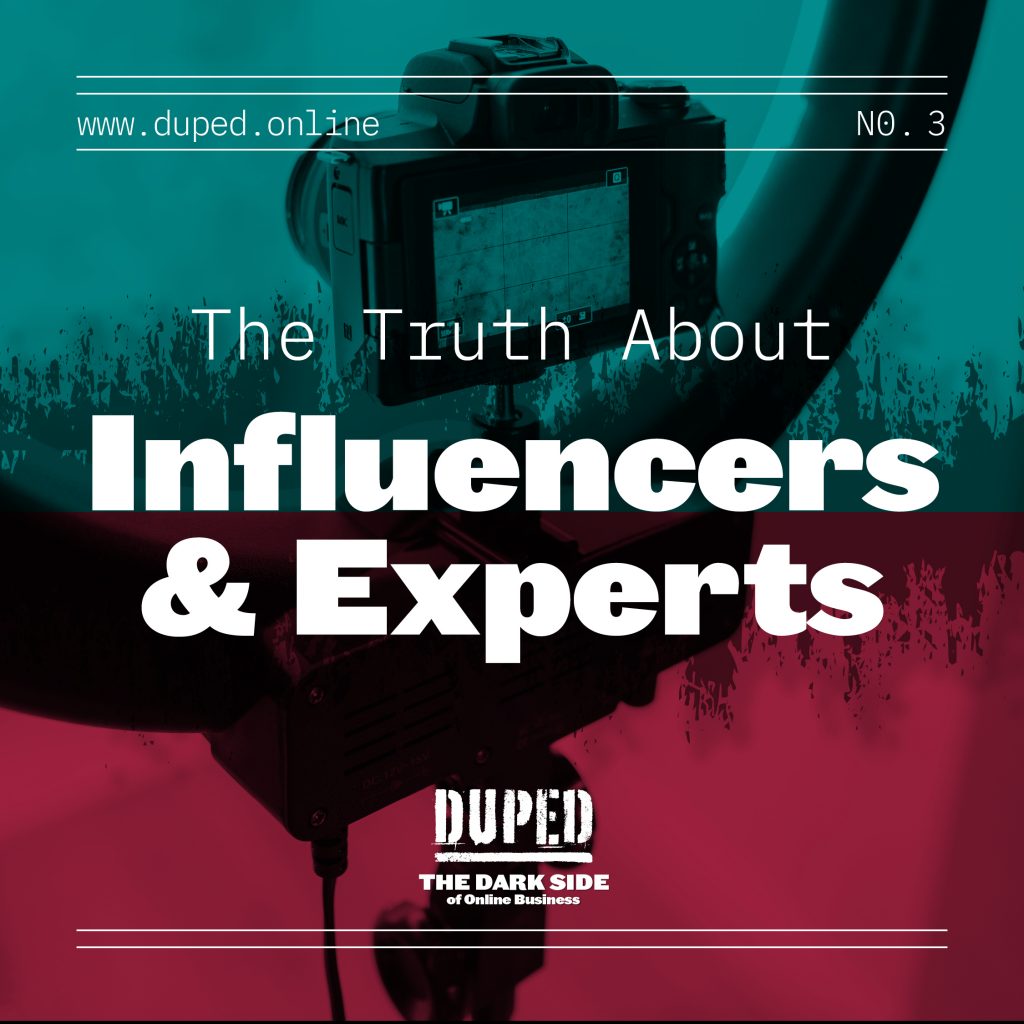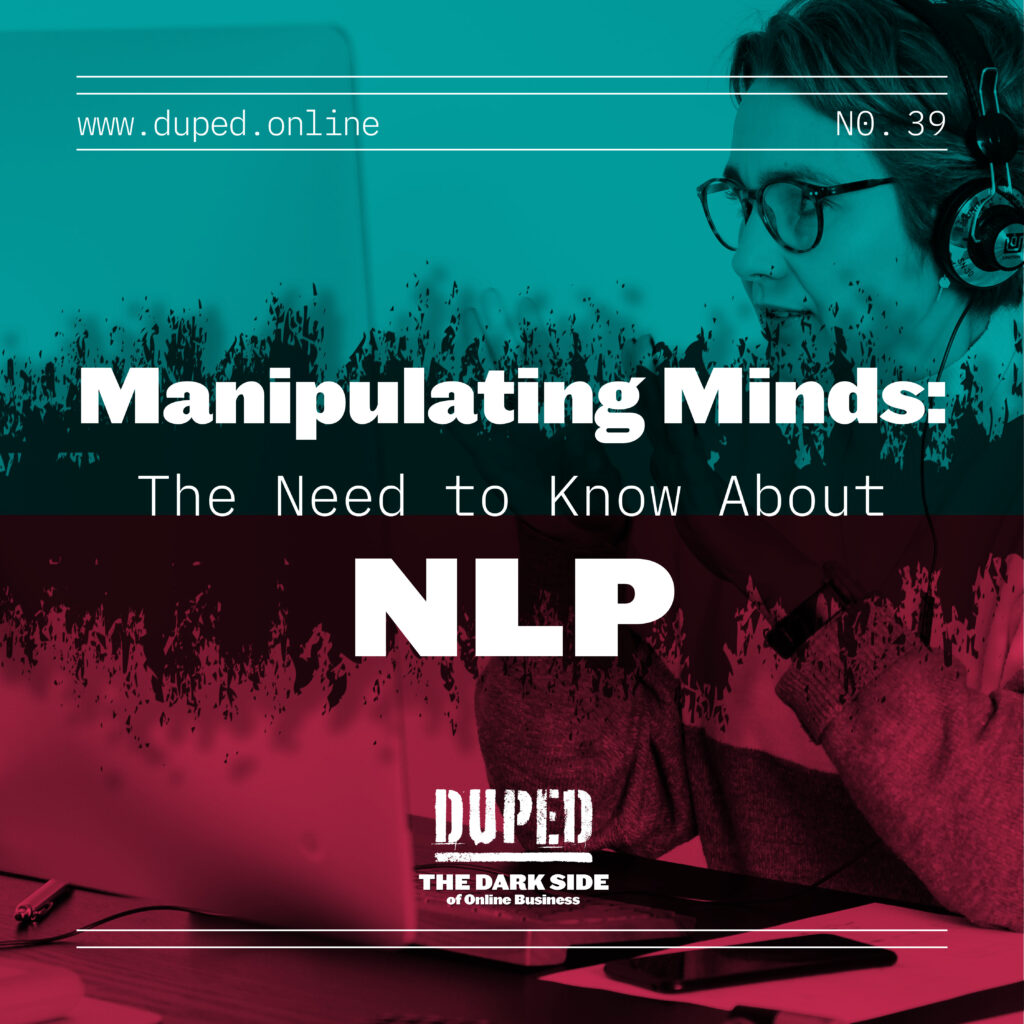
Manipulating Minds: The Need to Know About NLP
Have you heard of something called neurolinguistic programming or NLP? It’s everywhere in online business, but no one seems to be able to explain what it is or why we use it.
In this episode, we tackle everything from its controversial history to its widespread online influence to answer the question: are you being manipulated by NLP? And would you even know if you were?

First, let’s answer the question, what is NLP?
According to PsychCentral.com, “Neuro Linguistic Programming is an approach that focuses on how you communicate with yourself and others, and how this affects your behaviors and behavior outcomes.”
This seems entirely reasonable, so why is NLP so controversial? And why do consumers need to be aware of NLP and how it may be used to manipulate our minds?
NLP dates back to the 70s, and to understand why we’re talking about this today, we need to jump in the time machine.
Neuro-Linguistic Programming: A Brief History
In the early 70s, Richard Bandler, a computer scientist and Gestalt therapist, and John Grinder, a linguist, started working together to model patterns of “excellence with therapists including Fritz Perls, Virginia Satir, and Milton H. Erickson.
Bandler and Grinder published their first book in 1975, The Structure of Magic, which delved into therapists’ language and communication patterns. The following year, they published “Patterns of the Hypnotic Techniques of Milton H. Erickson, M.D.” looking at Erickson’s practices. Together, these books become the basis of NLP as we know it.
Bandler and Grinder teach NLP as a “therapeutic method” and as a study in communication. By the end of the decade, it started being marketed as a business tool and claiming that if “any human being can do anything, so can you.”
Tony Robbins claims Grinder as one of his most influential mentors. He became partners with Grinder and says that NLP is how he “learned to do things like wipe out a phobia.”
The 80s is when things fall apart with Bandler and Grinder, and they stop talking to each other, and there are two lawsuits. As an article from NeuroSemanics.com points out, why couldn’t these two communications experts with their amazing systems talk to each other?
Throughout the 80s and 90s, we see NLP gain in popularity, and it’s been used for personal development psychology, sales training, and more. There’s a boom in workshops and certification programs, which has continued today thanks to people like Robbins championing its use.
NLP shows up in online business today, even though many mental health professionals and cult experts have concerns. The primary problem is that it lacks scientific evidence and is often used without the knowledge or consent of the individuals involved.
A 2020 article on Jezebel by Tracy Clark-Flory detailed how NLP has been used in various ways by pickup artists and cults like NXIVM.
This is why I wanted to ensure I did my homework for this episode, reading three specific books: Bandler’s The Ultimate Introduction to NLP (How to Build a Successful Life), Emory Green’s Dark Mind Control Techniques in NLP, and Paul Robert Mind’s Dark Psychology.
What Does NLP Involve?
NLP uses many tools and techniques, making it complicated to understand. Before we get into the nuts and bolts of why consumers should be wary, we wanted to discuss a few of the most common techniques.
Modeling: This is where you model someone’s behavior, mindset, and beliefs to enrich your world model.
Meta Position: You disassociate beyond yourself to detach from your position on something.
Rapport Building: A way to connect with people using backtracking, pacing, mirroring, or other techniques to build trust.
This brings us to the point of this episode, which is that NLP is full of issues that have the potential to impact each of us as a consumer.
Concerns About NLP and Online Business
The use of NLP is widespread in online business. Coaches use it for mindset work. Copywriters use it to appeal to potential customers and overcome objections. It’s used in marketing and sales to persuade people to take action or in storytelling. It shows up at events and large group awareness training.
In short, NLP is everywhere.
The more you know about it, the better, as it has the potential to manipulate you. These techniques include persuasion, influence, and communication and can easily be misused.
Here’s what you need to know.
Lack of Scientific Validation
NLP and its claims haven’t been scientifically validated, making it a pseudoscience much like what we see with other self-help techniques.
One of the big selling points of NLP is that it can be used for “rapid” change and to create success. It can be used for nearly anything, making it ripe for sweeping generalizations. NLP claims it can be used for countless purposes, including improving communication to manage stress and anxiety, building confidence, sales, and persuasion, and even overcoming phobias and fears, but there’s no science backing it up.
Lack of Specificity
One of the significant criticisms of NLP is that it lacks specificity. If you read through all the techniques it uses, it reads like a laundry list of things that range from relatively common, like anchoring, to more complex ones, like timeline therapy used to deal with trauma.
This should be treated as suspect, as no one modality can magically fix all of these things, and should someone who did a $7 NLP course online be messing around with your phobias or trauma?
Lack of Oversight
NLP is deeply entrenched in the coaching and self-help space, but it needs more oversight and regulation. Anyone can claim to be a trainer or use it without qualifications. In the online space, I’ve seen many people get trained in it, and when it’s claiming to do so many things, shouldn’t we consider its quality and ethics?
NLP can be covert, and it can be used to manipulate people. In the book Dark Mind Control Techniques in NLP, the author explores NLP’s ethics, concluding it’s “inherently unethical,” but it could be ethical if the participant is “profoundly aware of what is going on, and has given permission ahead of time.”
Should You Trust NLP?
Whether you believe in NLP or not, you should proceed with caution in the online space, as many techniques that are seen as “normal” are using NLP.
While the scientific evidence is lacking, there’s enough evidence of bad actors, such as cult leaders using NLP, resulting in grave consequences. NLP is not something I’m comfortable with using in my own business or having used on me.
Links for this episode:
- All About the Basics of Neurolinguistic Programming
- History of NLP
- Who Inspires Tony Robbins?
- When the Magicians Went to War
- Research Findings on Neurolinguistic Programming: Nonsupportive Data or an Untestable Theory?
- Revisiting the Book That Inspired Pickup Artists, Cult Leaders – and Was Linked to a Murder
- Neuro-Linguistic Programming: Cargo Cult Psychology?
- A Cult Expert Tells Us Why the NXIVM Story Is Far From Over
- Netflix’s How to Become a Cult Leader
- HBO’s The Vow
- FTC Order Against The Sales Mentor
Join the

Patreon

for only $7/month and get a
monthly bonus episode,
behind-the-scenes content
and more.
Recent Episodes of Duped
- « Previous
- 1
- …
- 3
- 4
- 5
